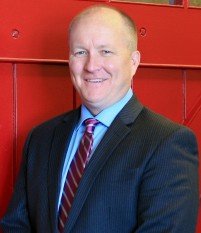Helping vulnerable children early is key to closing achievement gaps
 Matt Gillard is president and CEO of Michigan’s Children, an independent voice working to reform public policy and improve the odds of all children from cradle to career.
Matt Gillard is president and CEO of Michigan’s Children, an independent voice working to reform public policy and improve the odds of all children from cradle to career.
No longer a top tier state for education, Michigan today has larger gaps in student outcomes among its diverse populations than many other states, jettisoning our state to 37th in the nation according to the National Kids Count project. These learning gaps start early and persist and grow throughout educational careers without appropriate intervention and support, threatening our state’s future and the futures of thousands of our children.
New State Superintendent of Schools Brian Whiston has begun his tenure focused on asking groups (many with competing interests) to talk with the State Board of Education about fixing that, and restoring Michigan to a top 10 state in education within 10 years.
At Michigan’s Children, we believe the answers lie in shrinking these achievement gaps and reducing student disparities through known evidence and practices that work best for children, youth and families, and their schools and communities. Positive change can happen even as state decision makers face unique pressures to fund costly road fixes while determining investments in the most struggling schools and districts.
We shared our recommendations that support students within and beyond the classroom to assist with their eventual success in a presentation to state Superintendent Brian Whiston this week, outlining a strategy that includes several specific areas for attention.
Start early. Education is a lifelong process beginning at birth with differences among children becoming evident as early as 9 months. By 6th grade, children from low-income families have 6,000 fewer hours of learning than their peers due to fewer opportunities for early, consistent and expanded learning. The education system must continue to focus early to head off future problems by increasing parent coaching and supports through voluntary home visiting options, building state investment and maximizing federal investment in Early On, and continuing to improve our child care subsidy system.
Because children succeed when their parents do well, the education system must support parents' role in children's learning. The evidence on this is clear, particularly for early literacy skills and retention in the early grades. Today, four out of 10 Michigan schoolchildren aren’t reading proficiently by third grade, and the rates are much higher for children of color. The education system must expand support to help parents reach their educational and career goals through investments in Adult Education, workforce supports and family literacy options, and promote effective two-generation programming where families can learn together.
Trauma from family stress, mental and behavioral health issues, violence and loss, abuse or other social or emotional issues can undermine a child’s ability to learn and grow academically. Yet, we don’t fully recognize its impact on learning gaps and educational achievement in our policy and practice. The education system must implement good practices in schools and provide educators with the necessary tools to deal with symptoms of student and family trauma. Improving connections with community partners who can help is vital.
When schools are able to unite families with other community resources, there are more chances to find and address the causes of school absence, behavioral issues and academic problems whether they are caused by health issues, unstable housing, bullying or disengagement by parents or students. There is ample evidence that after-school and summer learning programs help to integrate community services for students and families, and support their academic progress by getting students motivated and engaged with their learning, helping them get caught up when they get behind and keeping them on a successful trajectory.
Finally, there is no one-size-fits-all for student success. Because children are inherently different and come with an array of challenges, young people need multiple pathways to success beyond the traditional, arbitrary four years of high school. Therefore, we must invest in second-, third- and fourth-chance programs for high school completion. In addition, we must prevent unnecessary expulsions that leave too many students adrift from college and career by promoting school attendance and adjusting school discipline policies.
It is clear that the superintendent and school board are uniquely positioned to provide needed leadership for this difficult work by taking into account the expertise of many sectors of work, including family and community resources. To do so recognizes a universal truth: A child’s ability to succeed in school and life relies on multiple factors, most that aren’t exclusive to what happens inside the classroom, but extend far beyond that learning environment. Improving the state’s ability to build success in more students is possible and essential, and will require a commitment from many partners. We encourage our educational leadership to join Michigan’s Children and many others to put all of our children and families at the forefront of what it takes to make Michigan education great again.
See what new members are saying about why they donated to Bridge Michigan:
- “In order for this information to be accurate and unbiased it must be underwritten by its readers, not by special interests.” - Larry S.
- “Not many other media sources report on the topics Bridge does.” - Susan B.
- “Your journalism is outstanding and rare these days.” - Mark S.
If you want to ensure the future of nonpartisan, nonprofit Michigan journalism, please become a member today. You, too, will be asked why you donated and maybe we'll feature your quote next time!

